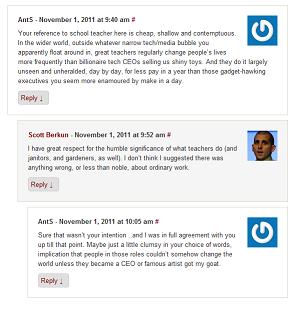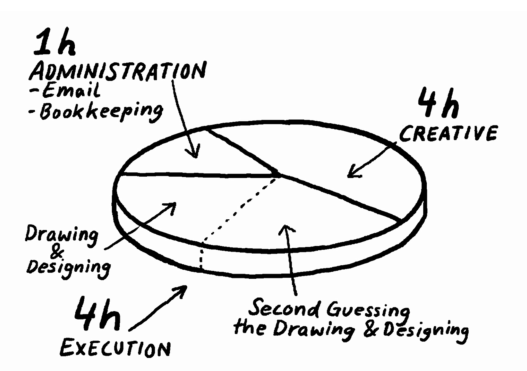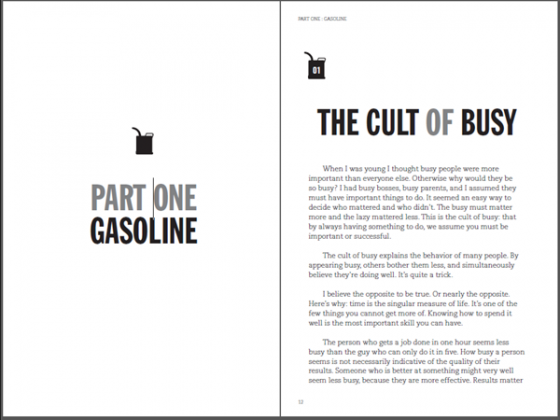My friend Phil Simon, author of Why New Systems Fail and The New Small, is about to self-publish his fourth book, The Age of the Platform. Unlike people who talk about writing books but never do it, Phil bootstrapped himself, and started a writing career all on his own.
With his new book about to release, I asked him about his process, to share with other aspiring authors.
SB. You’re publishing your fourth book. What made you decide to start?
I started because it seemed a good release of knowledge. I amassed experience in IT and had strong opinions. What better way to get them out? And to avoid spending a bunch on shrinks. That’s why I started in 2008.
I also enjoy writing—and the challenge of longer-form texts. I like to blog, but books are major challenge to pull off properly. Plus, when you write, you can see yourself evolve and improve. It’s a rush to watch yourself get better. I had also seen the success friends had in writing. That demystified the process. When a friend of yours has written books, it somehow personalizes it. That doesn’t make it easy; it just makes it possible.
Next, books are just good business. Non-fiction works can be big, thick business cards. They confer expertise. They can also generate passive income. Finally, I have great respect for the written word. I’ve always been a reader and want to add to the collective body of knowledge out there.
SB. What are the biggest mistakes you’ve made in self-publishing? Would you recommend it?
The first edition of Why New Systems Fail was a great learning experience. I assumed I could do everything myself. I did—and the book suffered. I learned you have to hire professionals to produce professional work. This includes a cover designer, design person, proper editor, indexer, and proofreader. Just because you can do these things yourself doesn’t mean that you should. The New Small was the first book from Motion Publishing and I was pleased with the results., although I should have hired a professional indexer.
As for self-publishing, I do recommend it —with reservations. If you don’t know what you don’t know, then go with a traditional publisher first. Then you can learn the ropes—even if from the outside. You can also use subsidy presses like Lulu, but you don’t have the same control as being on your own. If you self publish, do it properly—and don’t be afraid to spend money. Don’t put out a book of poor quality.
SB. Your upcoming book, The Age of The Platform, is your second book developed using Kickstarter. How has that helped you work without a publisher?
For one, it mitigates financial risk. If you’re going to publish you should raise as much money and awareness as possible—beforehand. Many people focus so much on the writing they forget to concentrate on what to do after the book comes out. The last thing you want to hear is crickets after months and months of hard work on your magnum opus.
SB. Haven’t platforms been around for a long time? Microsoft, Apple, and AOL all had developer platforms where they sold services and created business opportunities for 3rd parties. What has changed?
The notion of a platform isn’t new—and I discuss that in the new book. So, what’s changed? Technology has become democratic. Thousands of companies are piggybacking off of platforms created by The Gang of Four: Amazon, Apple, Facebook, and Google. Bezos, Zuckerberg, and others realize that they can make more money and innovate faster by partially outsourcing innovation. It’s not buying or crushing other companies; it’s trying to work with them to grow the pie. Open APIs and development kits make innovation arguably easier than it was the closed source era of the 1990s.
I’m an example. I’m a small business of one. Yet, I am an Apple partner. I make money—as does Apple—when people buy my books for the iPad. I also created with a development company an app based on the last book. I make money when people buy my books on Amazon and I can use Google to monetize my site via AdSense. Look at what Zynga does for Facebook—and vice versa. The possibilities are limitless.
These days, many entrepreneurs and startups are either building their own platforms or trying to be planks in existing ones. The platform is now a business model—and an incredibly important one.
Check out The Age of Platform, now out on amazon.com.
 It only took a zillion years, but scottberkun.com finally has fully threaded comments. Now you can disagree with someone, and have them disagree right back, with visual formatting that fully clarifies they are disagreeing with just you and your post, and not anyone else.
It only took a zillion years, but scottberkun.com finally has fully threaded comments. Now you can disagree with someone, and have them disagree right back, with visual formatting that fully clarifies they are disagreeing with just you and your post, and not anyone else.

 For 52 hours, the entire book was available for free. But don’t worry. If you like free things, you are still in luck
For 52 hours, the entire book was available for free. But don’t worry. If you like free things, you are still in luck This thursday, Nov 3rd, will be the extreme awesome unprecedented universal grand premier of my new book, Mindfire: Big Ideas for Curious Minds.
This thursday, Nov 3rd, will be the extreme awesome unprecedented universal grand premier of my new book, Mindfire: Big Ideas for Curious Minds.

 You can kill two birds with one stone. Throw in some cash to help support my upcoming book,
You can kill two birds with one stone. Throw in some cash to help support my upcoming book, 



